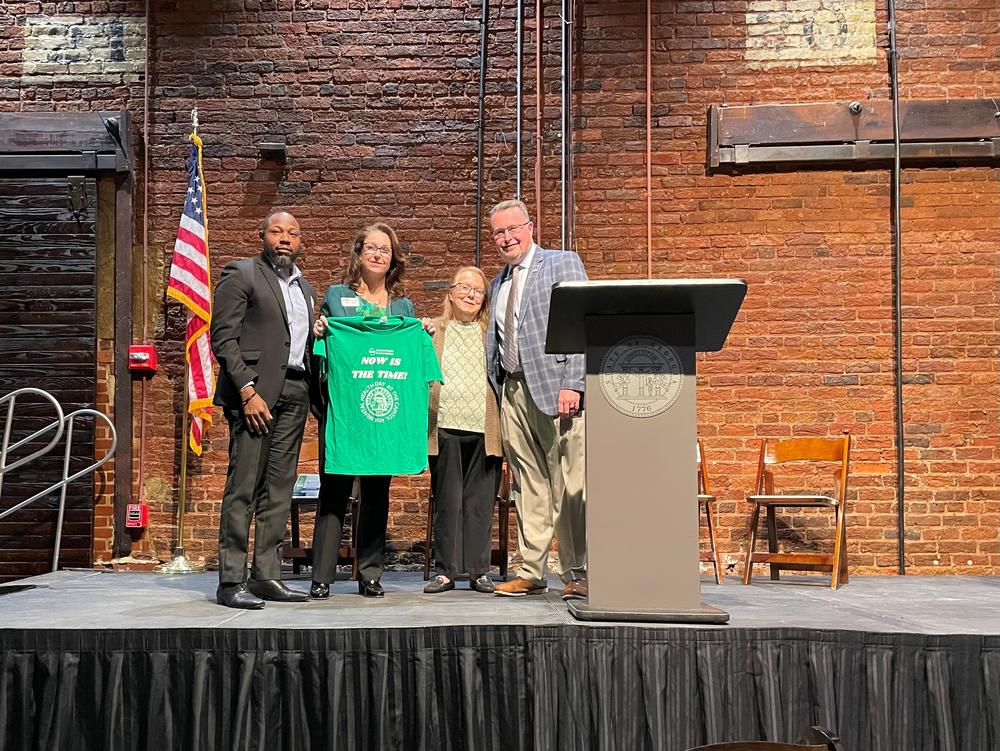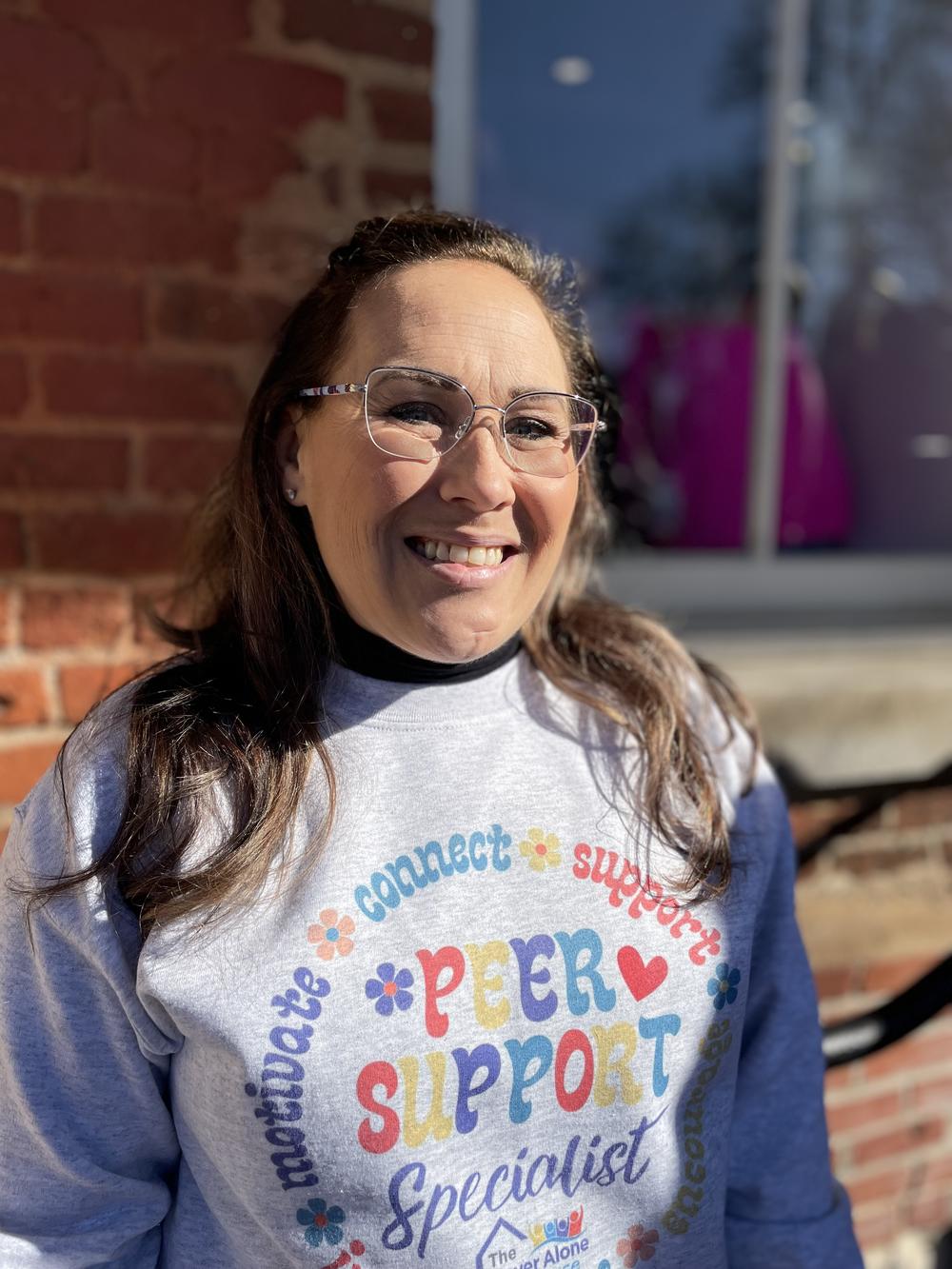
Caption
Georgia Mental Health Consumer Network CEO James Todd, National Alliance on Mental Illness Ga. Director Kim Jones, BHSC Chair Sue Smith, and Department of Behavioral Health and Developmental Disabilities Commissioner Kevin Tanner on the stage at the Georgia Freight Depot Jan. 24, 2024.
Credit: Ellen Eldridge / GPB News


